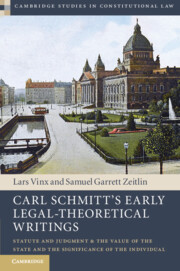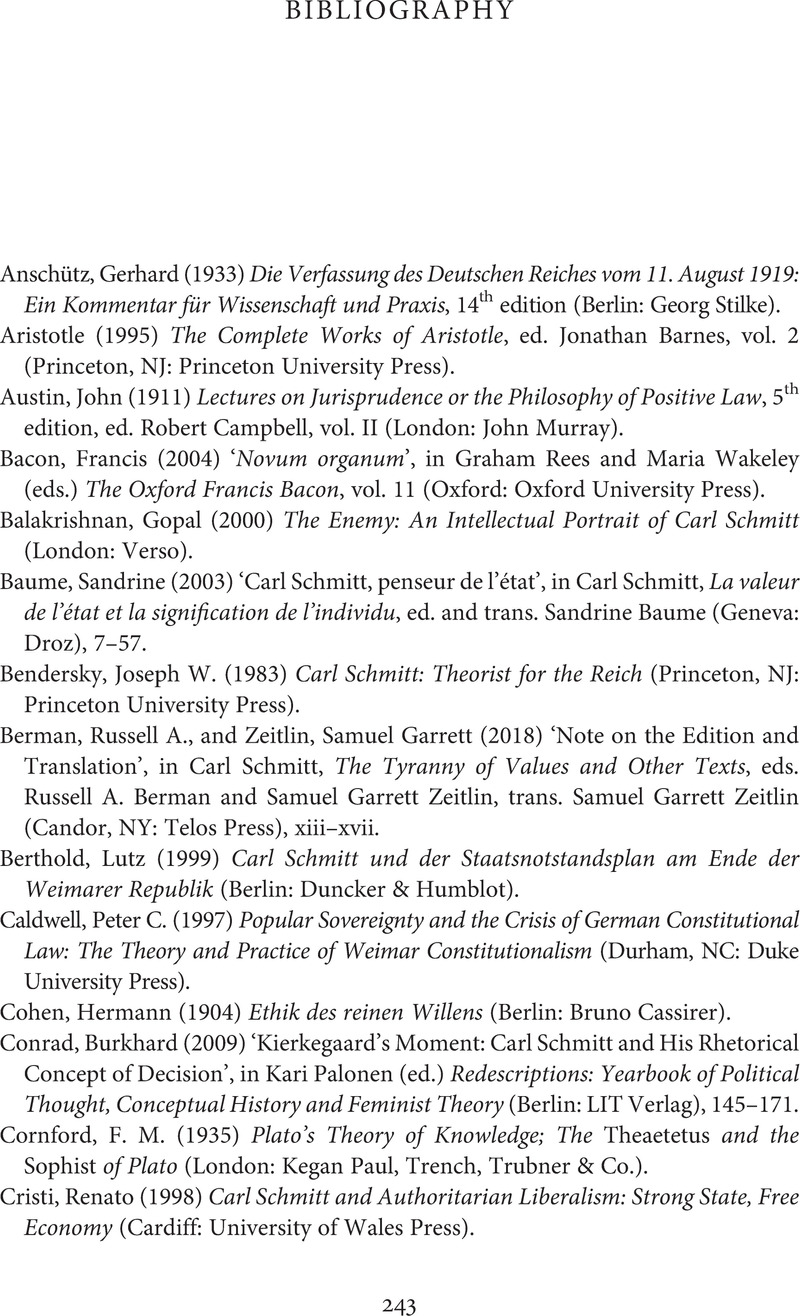 Carl Schmitt's Early Legal-Theoretical Writings
Carl Schmitt's Early Legal-Theoretical Writings Book contents
- Reviews
- Carl Schmitt's Early Legal-Theoretical Writings
- Cambridge Studies in Constitutional Law
- Carl Schmitt's Early Legal-Theoretical Writings
- Copyright page
- Contents
- Acknowledgements
- Introduction
- Statute and Judgment
- Statute and Judgment
- The Value of the State and the Significance of the Individual
- The Value of the State and the Significance of the Individual
- Bibliography
- Index
- References
Bibliography
Published online by Cambridge University Press: 17 April 2021
- Reviews
- Carl Schmitt's Early Legal-Theoretical Writings
- Cambridge Studies in Constitutional Law
- Carl Schmitt's Early Legal-Theoretical Writings
- Copyright page
- Contents
- Acknowledgements
- Introduction
- Statute and Judgment
- Statute and Judgment
- The Value of the State and the Significance of the Individual
- The Value of the State and the Significance of the Individual
- Bibliography
- Index
- References
Summary

- Type
- Chapter
- Information
- Carl Schmitt's Early Legal-Theoretical WritingsStatute and Judgment and the Value of the State and the Significance of the Individual, pp. 243 - 250Publisher: Cambridge University PressPrint publication year: 2021


